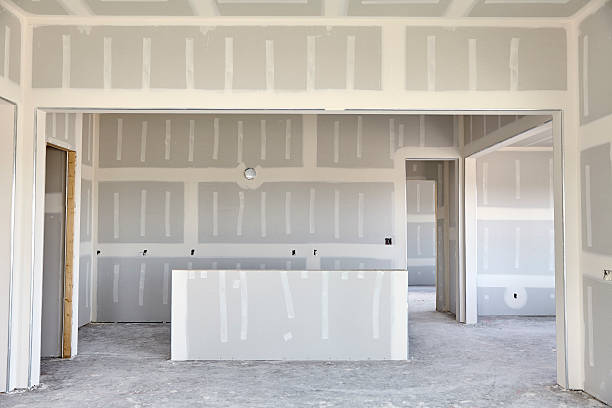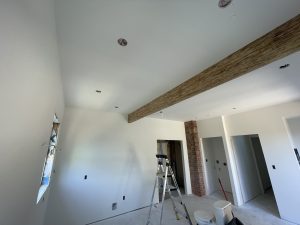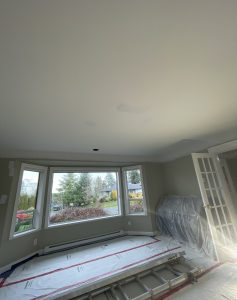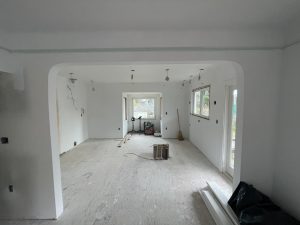In an era where environmental consciousness is increasingly becoming a priority, the construction industry, including drywall repair, is undergoing a significant transformation towards sustainability. As professionals in the field, it’s essential to recognize the environmental impact of our work and embrace practices that minimize waste, reduce energy consumption, and promote eco-friendly solutions. In this article, we’ll explore the importance of sustainability in drywall repair and highlight innovative approaches that redefine industry standards.
Why Sustainability Matters: The construction industry is a significant contributor to environmental degradation, accounting for a significant portion of global energy consumption, waste generation, and greenhouse gas emissions. Drywall repair, while seemingly minor compared to large-scale construction projects, still plays a role in this environmental impact. Traditional repair methods often generate significant waste, including excess materials and packaging, and may involve the use of harmful chemicals and volatile organic compounds (VOCs) that can impact indoor air quality and pose health risks to occupants.
Sustainability in drywall repair addresses these issues by adopting practices that minimize waste, reduce energy consumption, and prioritize the use of eco-friendly materials. By doing so, contractors can not only reduce their environmental footprint but also promote healthier indoor environments and contribute to a more sustainable future for all.
Strategies for Sustainable Drywall Repair:
Material Selection: Choose eco-friendly drywall products made from recycled or sustainable materials. Look for manufacturers that prioritize environmental stewardship and offer products with low embodied carbon. Additionally, opt for low-VOC joint compounds and eco-friendly paints to minimize indoor air pollution and promote occupant health.
Waste Reduction: Implement strategies to minimize waste generation during the repair process. This includes accurately estimating material quantities, salvaging usable materials from demolition, and recycling waste materials whenever possible. By segregating materials on-site and partnering with recycling facilities, contractors can achieve significant reductions in waste sent to landfill while lowering disposal costs.
Energy-Efficient Practices: Optimize transportation routes to reduce fuel consumption and greenhouse gas emissions. Additionally, invest in energy-efficient equipment and tools, such as electric sanders and LED lighting, to minimize energy usage on job sites. By reducing energy consumption and carbon emissions, contractors can contribute to mitigating climate change and conserving natural resources.
Water Conservation: Conserve water by using low-flow equipment and implementing water recycling systems where feasible. Minimize water waste during cleanup by using environmentally friendly cleaning solutions and proper disposal methods. By minimizing water usage and promoting responsible water management practices, contractors can help preserve this precious resource for future generations.
Community Engagement: Educate clients and stakeholders about the importance of sustainability in construction and encourage them to prioritize environmentally responsible practices in their projects. Engage with local communities to support initiatives that promote sustainable development and green building practices. By fostering a culture of sustainability within the industry and beyond, contractors can inspire positive change and create a lasting impact on the built environment.
Case Studies:
Zero Waste Initiative: A drywall repair company implemented a zero waste initiative, aiming to divert all construction waste from landfills through recycling and reuse. By segregating materials on-site and partnering with recycling facilities, they achieved a significant reduction in waste sent to landfill while lowering disposal costs. This initiative not only reduced environmental impact but also demonstrated the company’s commitment to sustainability and responsible resource management.
LEED-Certified Project: A contractor specializing in commercial drywall repair completed a LEED-certified project, incorporating sustainable practices such as using low-emission materials, optimizing energy efficiency, and promoting indoor environmental quality. The project not only achieved LEED certification but also garnered positive feedback from clients and stakeholders for its commitment to sustainability. By showcasing the benefits of sustainable construction practices, this project inspired others in the industry to embrace environmentally responsible approaches to drywall repair.
Conclusion: Sustainability is no longer just a buzzword; it’s a fundamental principle driving change in the construction industry, including drywall repair. By embracing sustainable practices, contractors can minimize environmental impact, enhance worker safety, and contribute to a healthier built environment for future generations. As stewards of our planet, let’s lead the way in redefining industry standards and building a more sustainable future for all.






